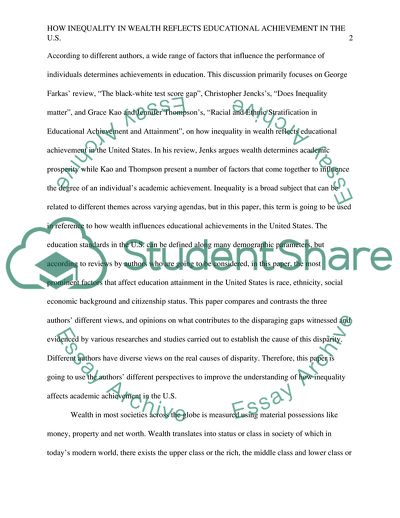Cite this document
(How Inequality in Wealth Reflects Educational Achievement in the US Literature review Example | Topics and Well Written Essays - 1500 words - 1, n.d.)
How Inequality in Wealth Reflects Educational Achievement in the US Literature review Example | Topics and Well Written Essays - 1500 words - 1. https://studentshare.org/education/1794871-how-inequality-in-wealth-reflects-educational-achievement-in-the-us
How Inequality in Wealth Reflects Educational Achievement in the US Literature review Example | Topics and Well Written Essays - 1500 words - 1. https://studentshare.org/education/1794871-how-inequality-in-wealth-reflects-educational-achievement-in-the-us
(How Inequality in Wealth Reflects Educational Achievement in the US Literature Review Example | Topics and Well Written Essays - 1500 Words - 1)
How Inequality in Wealth Reflects Educational Achievement in the US Literature Review Example | Topics and Well Written Essays - 1500 Words - 1. https://studentshare.org/education/1794871-how-inequality-in-wealth-reflects-educational-achievement-in-the-us.
How Inequality in Wealth Reflects Educational Achievement in the US Literature Review Example | Topics and Well Written Essays - 1500 Words - 1. https://studentshare.org/education/1794871-how-inequality-in-wealth-reflects-educational-achievement-in-the-us.
“How Inequality in Wealth Reflects Educational Achievement in the US Literature Review Example | Topics and Well Written Essays - 1500 Words - 1”. https://studentshare.org/education/1794871-how-inequality-in-wealth-reflects-educational-achievement-in-the-us.


